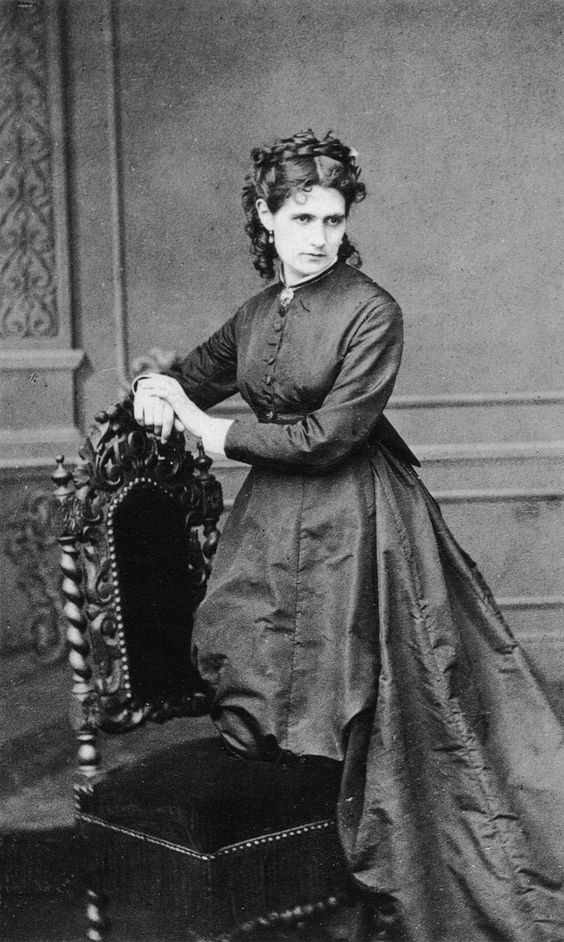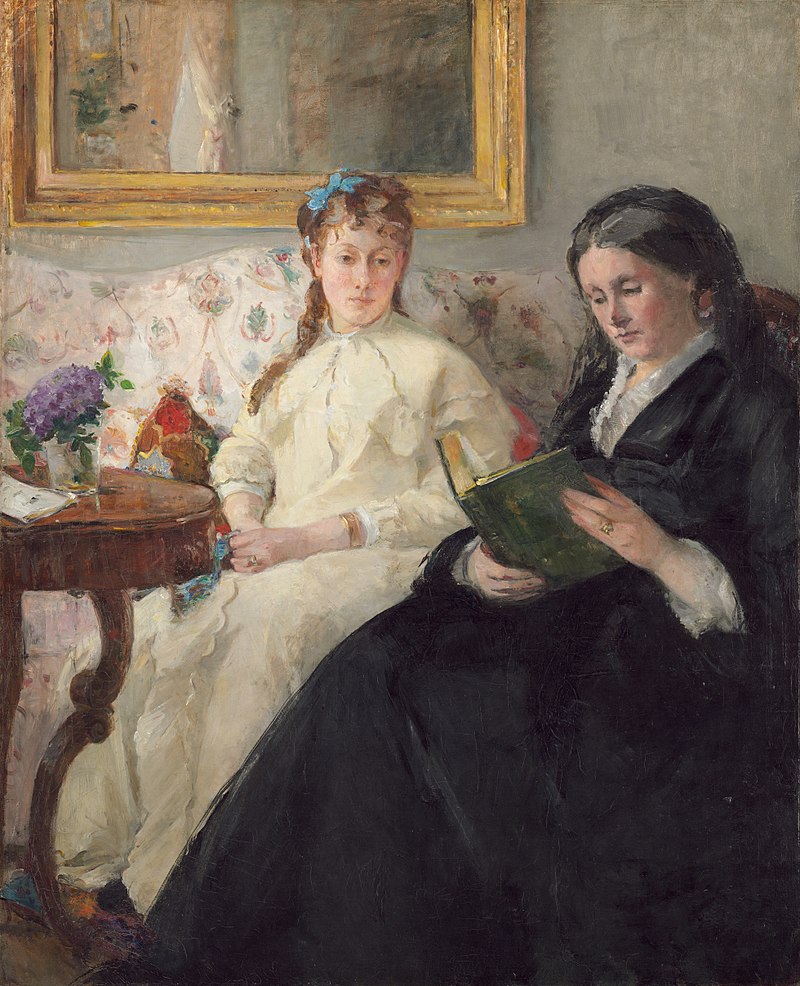 Berthe Morisot |
Respectability and the Female
Artist
Mary McAuliffe,
Paris, City of Dreams:Napoleon III, Baron
Haussmann,and the Creation of Paris, pp.109-111
At midcentury,
life for the
Parisian bourgeoisie -- especially for
bourgeois women consisted of a predictable set of rules staunchly adhered to.
Certainly the haute bourgeoisie
(upper middle class) family of Berthe
Morisot, although more inclined towards the artistic than were other families of
their station, had a conventional middle-class a attitude toward what they
regarded as the essentials of life, including property, occupation, social
status, manners, and – most especially – morality. . .

Berthe Morisot
Monsieur Morisot had harbored
artistic inclinations as a youth and had hoped to become an architect, but
yielding to bourgeois practicality, he had instead entered government service. .
. The family, which included Berthe; her sisters, Yves and Edma; and their young
brother, Tiburce, moved to what then were the western outskirts of Paris, in
Passy.
There, when Berthe was sixteen,
Madame Morisot brought her three daughters to the painter Paul Charles
Chocame-Moreau for lessons. Their brother, Tiburce, afterward wrote about this
unfortunate introduction to art. To begin with, the portrait in the place of
honor at the room’s center featured a young woman with elegant hairstyle who
was, as the sisters noted, most surprisingly nude to the waist.. . .
In any case, Chocame set the
three Morisot sisters to work with lessons in crosshatching-calling to mind
(this is Tiburce again) "the dreadful landscapes in the showcases of shops that
sell funerary articles." What a wretched time they had in Chocame's studio, and
how gloomy their trip was back to Passy, escorted by their father, who led the
three sisters, "in cloaks, long skirts, and bonnets tied under the chin, a
little flock reduced to a stupor by the Chocame instruction." . . .
And that is the way it went,
until Yves, the oldest sister, announced that if this was drawing, she would
rather be a dressmaker.
But Berthe and Edma persisted in
prompting their mother to find a better teacher, and soon Madame Morisot removed
them from the tutelage of Monsieur Chocarne and took them to the painter Joseph
Guichard, who quickly realized his pupils' talent. Indeed, not only did he
recognize it, he was alarmed by it. According to brother Tiburce, Guichard took
Madame Morisot aside and warned her that, given her daughters' talent, his
teaching would not simply give Berthe and Edma the amateur drawing-room
accomplishments so admired of young ladies in that era; in fact, the sisters
would become painters. "Do you realize what this means?" he demanded, sounding
more than a little distraught. "In the upper-class milieu to which you belong,
this will be revolutionary, I might almost say catastrophic." In fact, he added,
it would do no less than disrupt the "respectable and peaceful" Morisot home.

Berthe Morisot, The Mother
and Sister of the Artist (1869/70)